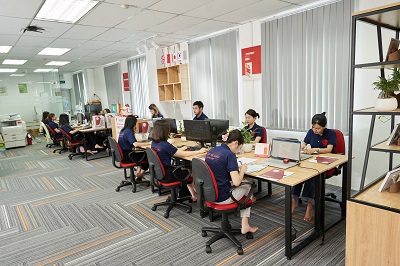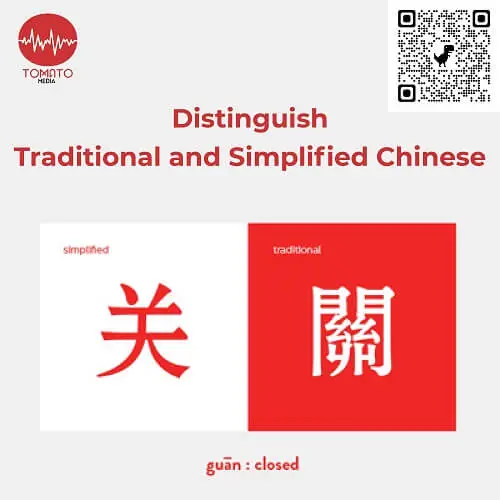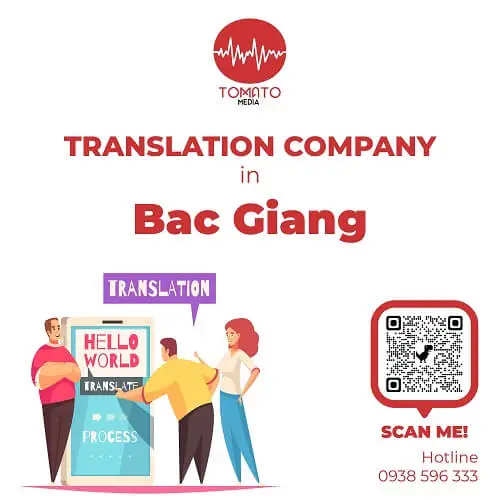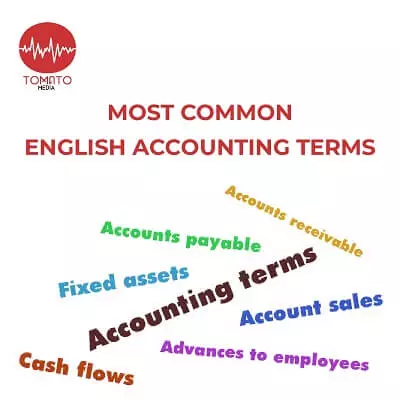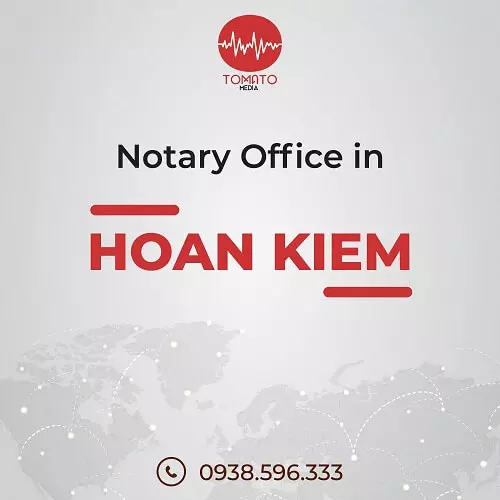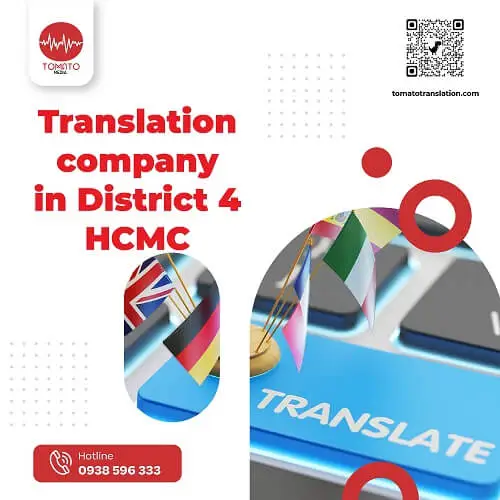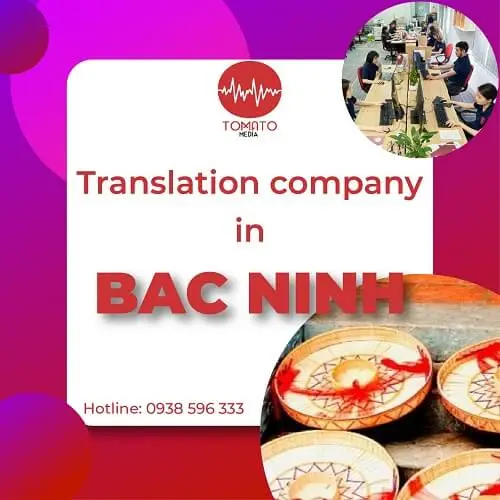More than 1.3 billion people use Chinese as their native language, making it one of the languages with the largest number of speakers in the world. The reason for this huge number is partly because China is among the most populous countries in the world and partly because the rapid development of the Chinese economy [...]
Learn about the translation profession | what do translators do?
Translators have become a fairly popular profession today. What is a translator? What qualities should a good translator have? Let’s join Tomato in exploring the answer through the article below.
NỘI DUNG (CONTENT)
Translators and translation profession
Although translators have become a well-known profession and are considered one of the more promising professions, do you really understand the concept of translation? Have you ever confused translation with interpretation?
What is translation?
Translation, also known as “written translation,” is the operation of changing words from one language to another. Unlike interpretation, translation does not bear the pressure of time or require a high level of immediate reflexes. Translation requires greater refinement, smoothness, and accuracy of the translation. The translation is not simply a language transformation; it is also a cultural transformation and a grammatical and lexical arrangement so that it is both accurate in writing and faithful to the original meaning.
Who are translators?
The translator is the one who performs the translation work. Translators can work in-house for translation companies, or as freelancers. Proficiency in languages and mastery of translation methods are two basic factors that help translators get their job done well.
How are translators different from interpreters?
| Characteristics | Translators | Interpreters |
| How to translate | Translations are expressed in written language | The spoken word |
| Implementation time | There is no pressure on time. The translator always has time to prepare and translate. | Great pressure on time. The translator must have heard, understood and translated instantly but still ensure the correct accuracy of the source language. |
| Support tools | Use translation support tools such as dictionaries, error testing software, Office technology software, etc. | If any, it is usually the tools associated with devices such as headphones and microphones. With the remote interpreter, there are more phones, laptops, online meeting software programs, etc. |
What do translators do?
Depending on the specialized field of a translation company, that company’s translators can have different specific jobs. For example, besides document translation, a translator is often assigned to the office administration task of making reports, arranging documents, etc. The following are the jobs that a translator needs to do:
-
The main task of a translator is to translate documents as assigned by the management.
-
Draft documents in different languages for internal reporting or to conduct transactions with foreign partners.
-
Search, and translate documents, information, and world trends to update the company, serving the process of improvement and development.
-
Prepare documents and presentation files in a variety of languages to serve meetings, presentations, and corporate seminars.
-
Re-read, check the accuracy as well as the style of the specialized materials available and revise (if any)
-
The translator needs to manage and organize the documents to be translated and their deadlines to be able to deliver the complete translation to the customer as scheduled.
-
Cultivate knowledge of expertise
A translator can translate most of the documents and papers as required by the client. Papers and documents that include:
Personal documents
- Identity cards, citizen identity cards
- Birth certificates
- Land use right certificates
- Household registration books
- School reports
- Transcripts
- Language certificate, course completion certificate
- Diplomas
- Student ID cards
- Driver’s licenses
- Study abroad applications, visa applications
- Injury certificates
- Marriage certificate
- Divorce agreement
- Certificate of vaccination
- etc.
Corporate documents
- Company profile
- Financial statements
- Invoice for material purchase
- Tax bills
- Labor contract
- Agreements on share assignment
- Joint venture agreement
- Insurance contract
- Real-estate lease agreement
- Business registration certificate
- Exclusive distributor certificate
- License to practice
- Certificate of origin
- Food safety certificate
- Patent
- etc.
Other documents
- Books, newspapers, specialized materials
- Catalogs, magazines, event information, news
- Dissertation, theses, essays, etc.
- DTP – desktop publishing
- MSDS documents
- etc.
Can the translator translate all kinds of documents?
The translator can translate a variety of documents as required by the client if there is enough time to study, read, and understand the documents as well as the area of specialization. Translators, no matter how excellent, cannot know everything. Therefore, if your document is in a field they do not know much about, time is exactly what the translator needs to produce a complete, accurate translation.
The world is vast, and knowledge is endless. Hence, there are countless fields in the world that have been explored and studied. In particular, some common specializations whose documents need to be translated include:
| Economy | Media – Entertainment | Medical – Pharmaceutical | |||
| Information technology | Banking and finance | Education | |||
| Environment | Oil and gas | Marketing | |||
| Tourism | Construction | Engineering – Manufacturing | |||
|
Automotive engineering |
Legal |
Life sciences |
|||
| Ecommerce |
Electricity – Electronics |
➩ | … |
Professional specifications with expert translators
Being a good translator is difficult because there are many other requirements in addition to language proficiency:
Professional qualifications
If you are a translator working at translation companies, it is often imperative to obtain a degree from a foreign language school or related profession. In addition, the translator needs an international foreign language certificate to show his or her qualifications. Personnel in charge of translation work at companies and businesses are not required to have a degree but need good translation skills.
Foreign language skills
This is the first and most important requirement. The translator needs to master at least two languages, have a rich vocabulary, understand the structure and grammar, and accurately and fully express the meaning of the text.
Good writing ability, rich vocabulary
The translator will be able to express sufficient ideas, assist the reader in understanding, convey emotions to the reader, and have a diverse writing style if they have strong writing skills and a large vocabulary.
Lookup skills
Sometimes, during the translation process, the translator may encounter unknown words. At this time, the lookup skill is important to be able to use proficient support tools, which saves time and still ensures accuracy.
Understanding different cultures
A translation is not only accurate but also includes cultural elements. Understanding the local culture will aid in translating the context of the translated text, correct expression, and make local readers feel at ease.
Ensuring professionalism
Translators need sincerity, zeal, work-related responsibility, emotional control, adherence to deadlines, and the absence of lateness.
Requirements for a good translator
Being a good translator is difficult because there are many other requirements in addition to language proficiency:
- Language ability: this is the first element of a translator. The translator must be fluent in both the native language and the target language to be translated. Translators may know many languages, but they must use their native language fluently. The foundation that aids translators in doing their job is the ability to speak that language fluently and with ease. In most cases, the qualification can demonstrate the language proficiency of the translator.
- Fairness: before translating a document, the translator must read the content and understand the author’s point of view. Personal feelings should not be included in the translation because doing so would skew the perspective and meaning of the text. This is taboo in translation.
- Meticulous and careful: the translation requires very high accuracy, so the translator needs to be meticulous and careful to ensure a correct translation that is close to the original.
- Lookup and information-gathering skills: In addition to language proficiency, translators must possess knowledge of common specialties, such as health, economics, fashion, and others. However, this specialized knowledge is too broad to necessitate the translator’s ability to look it up in order to more fully comprehend the content of documents.
- The ability to use translation methods and techniques: as mentioned above, translation is not merely the conversion of the language; the translator is responsible for communicating the content of the original document in another language so that it is easy to understand and carries the style of the native people. To achieve this, translators must develop their ability to translate by learning about the culture, traditions, mindset, viewpoint, and ideologies of the target audience.
- Time management skills and task allocation: Since the work must be managed by a translator, you must be able to plan your time and assign tasks effectively in order to deliver the finished translation on schedule.
Freelance translator – popular translation profession nowadays
The job of the translator is usually divided into two categories: “in-house translator” and “freelance translator.” Each form has different advantages and disadvantages.
An in-house translator has to follow the company’s prescribed hours (usually 8 hours a day), whereas a freelance translator can be more flexible in terms of time. Furthermore, there is no need to worry about a lack of clients because the in-house translator has a certain number of them.
Unlike in-house translators, freelance translators have the following characteristics:
- Flexible time: Freelance translators can organize their time flexibly to get things done.
- FFreedom to choose clients and working hours: The freelance translation profession is a suitable choice for those who want to be their own boss. Freelance translators also help translators reach every client file they desire. Through social networking platforms, freelance translators can connect with anyone who needs translation services, as long as they are qualified for the job.
- Age doesn’t matter: For freelancers, age is just a number. If the in-house translators will retire when they are old enough, freelance translators can work even after the retirement age prescribed by the state, as long as they are capable of handling the job. In many cases, customers expect to cooperate with older translators because they are people with long experience in the profession and have the ability to handle any situation arising for translation as well as other problems.
- Difficulties in finding customers: unlike in-house translators, freelance translators have to seek out customers on their own. This is one of the biggest difficulties of freelancing in translation. Freelance translators have to promote themselves to attract customers. And of course, over time, the process will be easier when you have a certain number of customers.
Characteristic of English, Chinese, Japanese, Korean and other languages translation profession
Currently, amid the rapid economic development of countries such as the U.S., China, Japan, and Korea, as well as the investment of enterprises from the above countries in Vietnam, the demand for translation into English, Chinese, Japanese, Korean, and other languages is increasing.
Because the West and East have differences in culture and mindset, the translation of documents into English, French, or German also has many differences from the translation of Chinese, Japanese, or Korean documents. Typical examples are the translation of various types of materials, such as books, newspapers, stories, literary works, or gender educational materials. The most visible evidence is that the translation of idioms, similes, and comparisons when translating into European, American languages, etc., indicates direct expression without euphemism as the translation into Chinese , Vietnamese, Japanese, etc.
The style used when translating documents in Chinese, Korean, Japanese, and other Asian languages also vary. In particular, the difference is most clearly visible in literary literature. Literary works often use metaphors, symbolic conventions, understatement, etc., so the translator must understand the profound meanings of those expressions in order to convey them smoothly and fully.
Opportunities and challenges of the translation profession
Any profession has its own opportunities and challenges, and so does the translation profession.
Opportunities for translation
- Have the opportunity to learn new knowledge of the countries of the world
- Translators are a profession with a high potential for development
- Stable income
- Translators have the opportunity to advance in the long run
- etc.
Challenges of the translation profession:
- Great work pressure and completion time pressure
- It is required to cultivate knowledge and skills every day because language is a field that is always innovating
Factors affecting the income of a translator
Here are some factors that affect the income of a translator:
Workload
Similar to some other professions, translators are paid according to the workload they undertake. Consequently, the greater the number of projects, the greater the income.
The project with complexity
If the project is highly specialized and complex, the cost of translation will also increase. When receiving a professional project, the translation company needs to choose a translator with an in-depth understanding of that area. Therefore, translators should accumulate knowledge to be able to deeply understand one or several specific specializations.
Translator qualifications
There are a growing number of translators today, as translation has become a popular profession. Therefore, if you lack sufficient competence and experience, you will not be appreciated and your income will be low.
Hopefully, this article will help readers in the process of learning about the translation profession. If you need accurate translations, let Tomato support you now.




